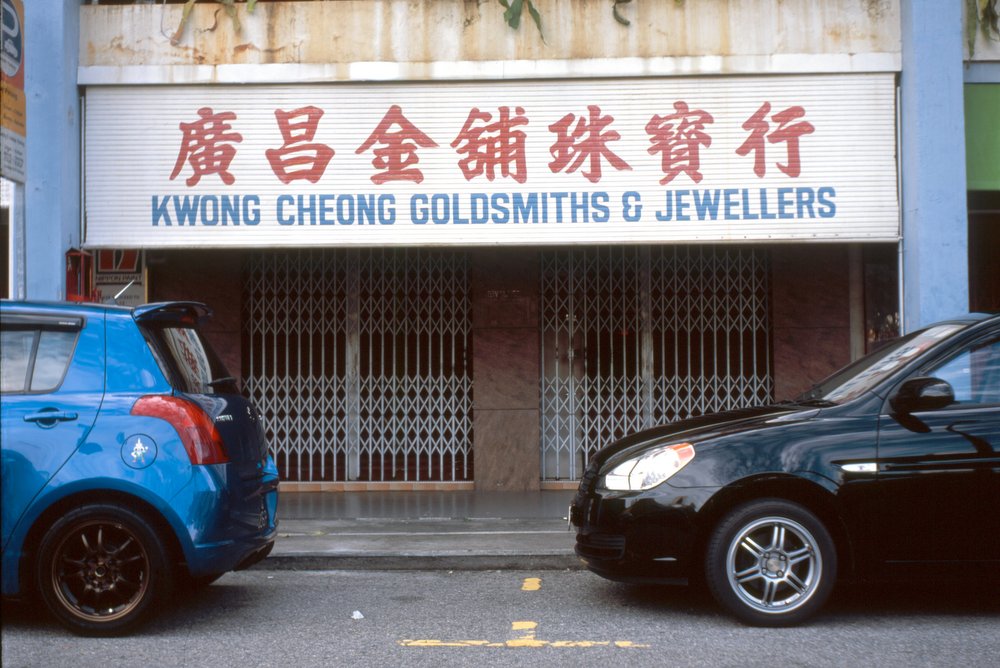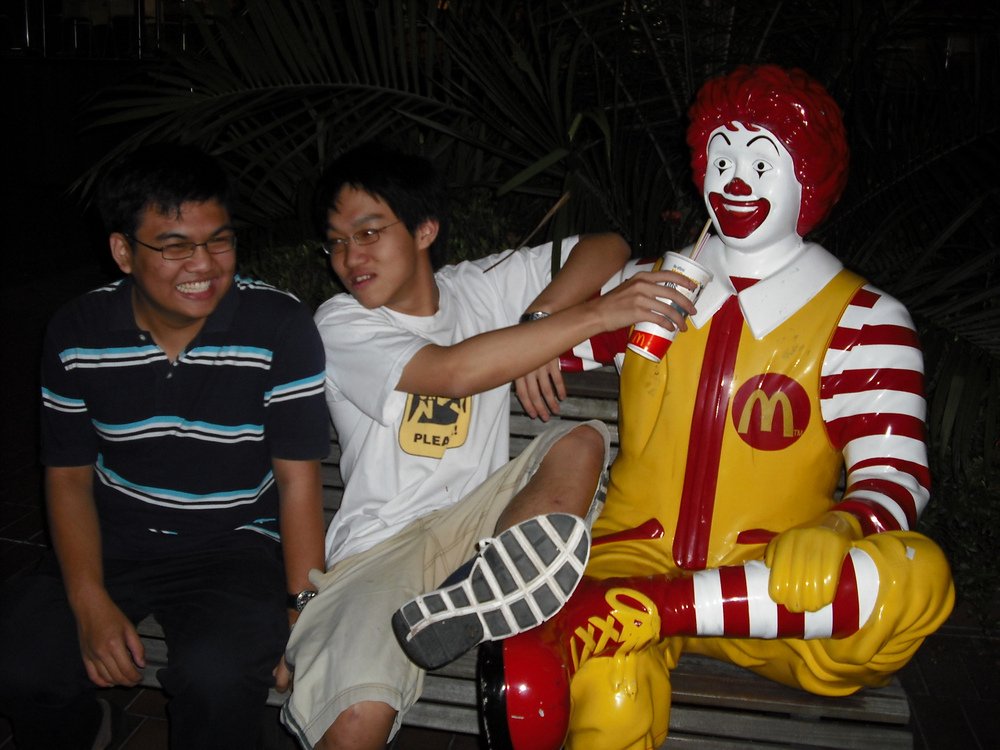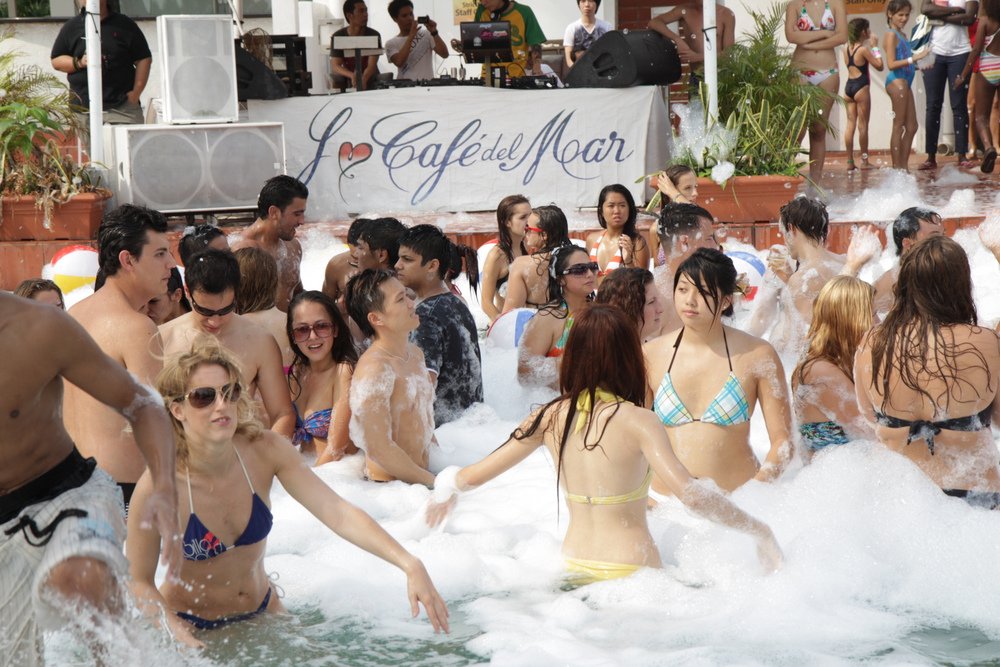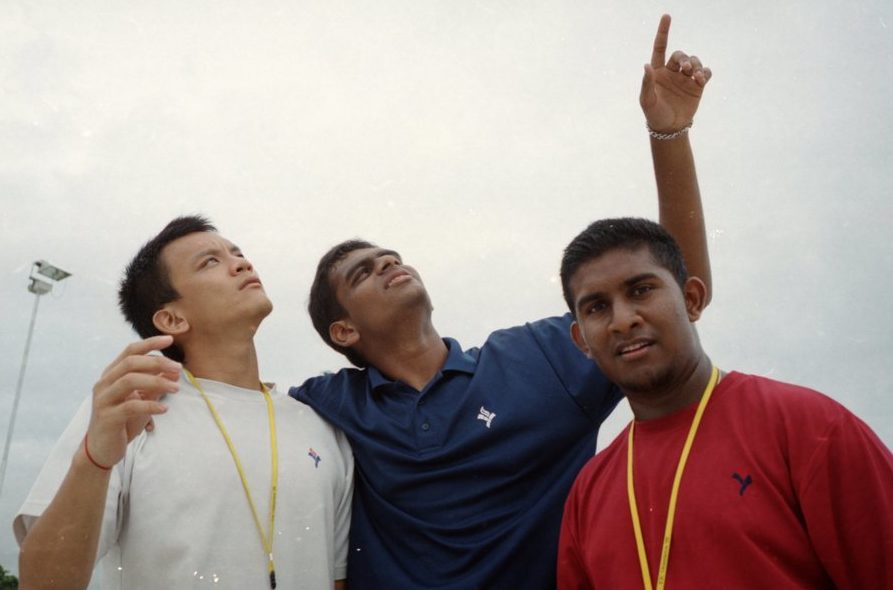How Chinese is Singapore? The long and short answer: people think it’s part of China.
It isn’t.
But one thing that really sets Singapore apart from other places that have overseas Chinese is the fact that it’s probably the ONLY place where Chinese people are not a minority.
I can’t think of any other place where overseas Chinese inhabit and where they aren’t a minority and have significant influence on the daily lives of all citizens.
But first off, let me just state that I wouldn’t say Singapore is a Chinese country. I believe it’s a multiracial country made up of Chinese people, Malays, Indians and other backgrounds (mixed-race Singaporeans, Korean Singaporeans, etc.).
In fact, because Chinese people make up about three-quarters of the population, Chinese culture and norms play a big part in the country’s day-to-day lives.
So how does Singapore contrast with other nations with an overseas Chinese population?
Singaporeans encounter Chinese “naturally”

Mandarin is particularly important and Singaporeans of all races who can speak Mandarin will find themselves at an advantage.
While English is still the most important language in Singapore, as it is in some former British colonies, Mandarin is a language that everyone can learn through the public school system.
That isn’t true for other places where overseas Chinese inhabit. If you’d want to learn Chinese in other places, you’d have to go through a special schooling system.
And it seems like that special schooling system isn’t always available. I think about my guest, Paloma Chen, who told me that she never had any interaction with her Chinese culture as she grew up in small-town Spain.
She contrasted her childhood with that of her cousins, who lived in a city. They had access to Chinese school and had a Chinese community surrounding them, which gave them a much better understanding of their culture.
Chinese Singaporeans, on the other hand, are surrounded by Chinese culture.
Chinese New Year is a two-day national holiday. Are there any non-East Asian nations which have Chinese New Year as a national holiday? The only other nation I can think of is Malaysia.
Chinese students will go to school where one subject would be the Chinese language.
And just like every other overseas Chinese student, most of them will absolutely hate learning Chinese. I certainly hated it as I surrounded myself with English-speaking friends and media.
I only made the effort to really learn Chinese in 2014 as a regretful adult whose hindsight was 20/20.
Language preferences among Chinese people in Singapore

I believe this to be true for every racial group in Singapore but I can speak to my experience as a Chinese person in Singapore.
In Singapore, you have English-speaking Chinese Singaporeans as well as Chinese-speaking Chinese Singaporeans.
It’s kind of like Montreal where you have English speakers and French speakers.
Every Chinese Singaporean is bilingual to some extent, with only a small minority being completely unable to speak Chinese or English properly.
Not being able to speak English is a huge barrier to upward mobility. I mean, the whole public school education system is built on the English language. English is also the primary language of business and in interactions with services and government.
But let me just share with you an example of some of my friends.
Some friends speak only English at home. They get all my references when I talk about Ludacris. They watch American TV.
Whereas I have another friend to whom I speak English, but he prefers Chinese media. He listens to JJ Lin and other Chinese singers.
One of the funniest things that I heard from my friend is how he was SHOCKED that I started listening to Chinese music.
I mean, like I said above, I grew up very English oriented. He met me between 2008-09, which was before I started taking an interest in Chinese (in 2014).
Chinese people in Singapore are invisible

In a sense, Chinese Singaporeans are invisible like John Cena.
You can still see John Cena despite what he says, but I’m more talking in a sense that he’s a white guy in America.
Being part of the majority brings this “invisibility” that I have come to forget about after living away from Singapore.
In Singapore, I don’t feel racialized. Perhaps just the same way as when I visit China. I feel like I am on equal terms with the people surrounding me.
People don’t look at me and racialize me.
Holy moly, did I ever tell you how I stood out like crazy in Mexico? Oddly enough, I got used to whatever I felt after a few days.
Here in the English-speaking world, it seems that Chinese men and women have different racial stereotypes applied to us — hardworking, can’t drive, greets by bowing, “love you long time” and others.
It’s even more hostile when people think we’re foreign actors who are loyal to where our ancestors came from. Ever heard “go back to China?”
The stereotypes and reputation that China has can spill onto overseas Chinese people, even if we have little to no connection to China.
I sometimes feel like I am a target for anti-China xenophobia. When tensions run high between China and a nation, we overseas Chinese can become scapegoats.
Fresh off the Boeing vs Stale off the Boat

As I interviewed other overseas Chinese, I noticed that whether you’re in Mexico, Spain, Trinidad, you’ll notice some barriers between Chinese people born in those places and immigrants.
It’s the same in Singapore.
I mean, we really grew up in different environments. Singaporeans are a tropical people who drive on the left and speak a mix of languages in a multiracial, cosmopolitan, urban environment.
The people from China that I met can come from different backgrounds. I mean, they can be from big cities like Beijing or Shanghai, as they can be from smaller cities or rural areas.
What about WeChat? I’d bet the majority of people from China use that chat app. Singaporeans might use WeChat but we primarily use WhatsApp and Facebook Messenger.
Naturally, a Singaporean who speaks Chinese will have a different accent from almost all mainland Chinese accents. Some words used in the Singaporean Chinese language would be considered archaic, while others would be considered completely wrong.
That difference exists between all languages. It’s like Spanish… terms, words and phrases change from country to country (and I’m not even talking about slang).
Are Chinese people from China that different from Chinese Singaporeans? I’d have to say no.
When I lived in Singapore, I rarely interacted with them. I had a Chinese tutor once from Beijing and she was excellent. She was part of a phenomenon where Chinese mothers would move to Singapore with their child (yes, one child policy) so that the child could study in a Singaporean school.
But as I moved to Canada, I encountered many, many more people from China. I learned that we have the same beliefs, habits and modes of living.
This year, I went to eat hot pot with my university roommate and his fiance from China. The hot pot was all-you-can-eat.
I think I ordered rice and she was… aghast. I could almost hear her say, “Dude, you’re at a buffet.”
And that’s when I knew our upbringings are… very similar despite us growing up in different nations.
FAQ
The majority of Singaporeans are Chinese. However, it’s not a Chinese country but a mulitracial one. The multiracial environment is encapsulated in the “CMIO” model which stands for Chinese, Malay, Indian and Others.
Probably the most Chinese country outside of East Asia.
Singapore had many different Chinese people who migrated from Hainan, Fujian, Guangdong and other southern parts of China, and they brought their native dialects to Singapore.
So, in the past, people spoke Hainanese, Hokkien, Hakka, Cantonese, Mandarin among others.
My mother told me that Hokkien (southern Min) used to be the lingua franca among Chinese people.
Gradually, though, the post-independence generation speaks Mandarin as the Chinese we learn in school is in Mandarin.
A scam that has nothing to do with Singapore.
Leave a Reply